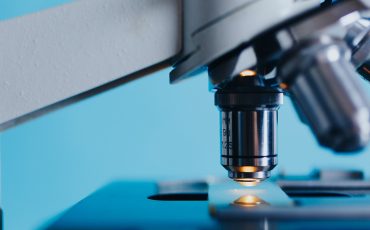UK scientists, including Tim Spector, Professor of Genetic Epidemiology at King’s, are to mount the world’s first search of the human genome for genetic risk factors for osteoarthritis.
ARC Press Release – 12 October 2007
On World Arthritis Day (October 12) the Arthritis Research Campaign (arc) has announced plans to run a definitive genome-wide association study of osteoarthritis susceptibility called arcOGEN; the largest study of its kind ever undertaken. The study will involve screening the DNA of 8,000 people suffering from osteoarthritis of the hip and knee and 6,000 healthy people to compare the differences.
The aim of the arcOGEN study is to identify the genetic changes, known as polymorphisms, that increase the risk of people developing osteoarthritis. The charity expects that this could lead to several potential breakthroughs such as genetic tests becoming available to predict who is likely to develop osteoarthritis, particularly at a young age, and how severely. Ultimately it could lead to new drugs that could slow down disease progression and even prevent osteoarthritis occurring.
The two-year study will be funded by a grant of £2.2 million: the largest single grant ever awarded by the medical research charity.
Osteoarthritis (OA) is the most common type of arthritis, affecting more than two million older people in the UK, causing pain and stiffness as the cartilage at the ends of bones wears away. It can affect any joints but involvement of the knee and hip is the number one cause of mobility problems in the elderly population. Despite its high prevalence there is no effective drug treatment to control the progression of osteoarthritis, and currently available painkillers carry a high risk of side effects.
Wrongly thought of as an inevitable consequence of ageing, osteoarthritis is a disease in its own right but the reasons why some people do, and some do not develop the disorder are unclear.
Debilitating disease
‘Osteoarthritis is an extremely debilitating disease characterised by joint pain and reduced mobility, and is the biggest cause of disability in older people bar none,’ explained Dr John Loughlin, principal investigator of the arcOGEN study, and a geneticist from the Nuffield Department for Orthopaedic Surgery at the University of Oxford.
‘Genetic factors play a major role in the development of OA and identifying them will help us to understand why the disease occurs and will assist in the development of new treatments by identifying new molecular targets. We have brought together all the major OA genetics research groups within the UK and experts in human genetics to enable us to perform the definitive search of the human genome for OA genetic risk factors.’
Professor Alan Silman, medical director of the Arthritis Research Campaign, said that arcOGEN could be the most important study the charity had ever funded and could have far-reaching consequences in terms of better understanding of the disease and identifying new treatment targets.
‘Compared with many other conditions where scientists have looked for a genetic basis, there is a very strong belief that OA is genetically-based because there are many families which have OA running through the generations,’ he said. ‘Until now we didn’t know what that genetic basis was, but now we have the modern technology we have a unique opportunity to unlock the genetic code.’
It is known that there is a considerable genetic component to osteoarthritis, and those people with a parent or sibling with the condition are two to three times more likely to develop OA than those who don’t. However, there are also other risk factors such as obesity, a sports injury or a heavy manual occupation. It may become possible for medics to perform a genetic-risk profile alongside a lifestyle-risk profile to determine the overall risk, and then offer treatment or advice on how the risk could be reduced.
Another leading member of the consortium, Tim Spector, Professor of Genetic Epidemiology and Director of the Twin Research Unit at King’s College London, said that the consortium’s investigation of the DNA of 8,000 patients would provide it with ‘unprecedented power’. The results would be made freely available as an international resource that could be mined for insights into new treatments. The outcome of the genome screen is likely to be of considerable interest to pharmaceutical companies wanting to develop new drugs to prevent the onset of osteoarthritis. Identifying predisposing genes will point out new biological pathways to target.
The arcOGEN team hope to find between ten and 20 of the genes that could have a strong to moderate risk for osteoarthritis, although there may be many more. Human DNA contains about 30,000 genes, with millions of polymorphisms, which will all be checked by sampling patients’ DNA taken from their white blood cells.
Genetics experts in London, Oxford, Manchester, Southampton, Nottingham, Edinburgh, Newcastle and Cambridge will form part of the UK-wide collaborative project.
For more information contact: Jane Tadman, Press Officer, Arthritis Research Campaign, tel: 01246 541107; mobile: 07974 203828; email: j.tadman@arc.org.uk
Notes to editors
The Arthritis Research Campaign (arc) is the fourth largest medical research charity in the UK, raising more than £30 million in 2006/7 entirely from public donations. It currently funds more than 350 research projects into all types of arthritis and musculoskeletal conditions in medical schools and hospitals around the UK, and also has an extensive educational remit. For more information about the work of the charity go to www.arc.org.uk
The Twin Research Unit, based at St Thomas’ Hospital, has a database of 10,000 twins and studies a wide variety of diseases and traits and is always looking for more adult twin volunteers, male or female, identical or non-identical to help with their studies. To volunteer or for more information please phone: 020 7188 5555 or visit the website.
Further information
Public Relations Department
Email: pr@kcl.ac.uk
Tel: 020 7848 3202






